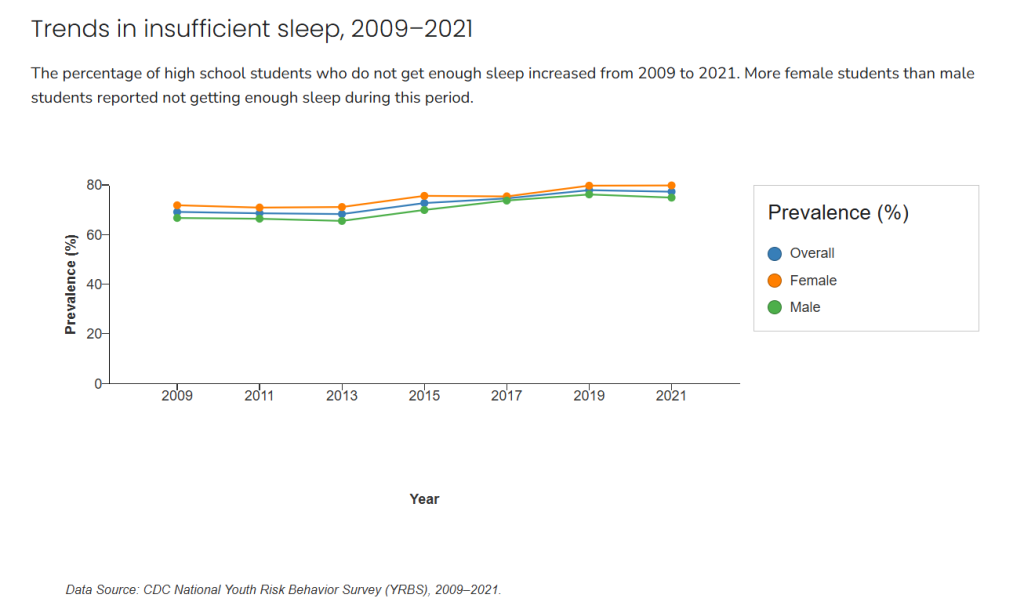Sleep Hygiene
In a world where we have so many differences, there are a few things we can agree upon. One of them is the need for sleep! As we’re a marking period in, we should have adjusted to waking up for school, but this can still be a challenge. We also have Daylight Saving this weekend that can create challenges. This quarter’s Wellness Word is everything you need to know about sleep. We’re discussing sleep hygiene-creating healthy habits to help get a good night’s sleep.

CDC Recommended Hours Of Sleep
| Age Group | Age | Sleep Recommended Daily |
| Newborn | 0-3 Months | 14-17 hours |
| Infant | 4-12 Months | 12-16 Hours (including Naps) |
| Toddler | 1-2 Years | 11-14 hours (including Naps) |
| Preschool | 3-5 Years | 10-13 Hours (including Naps) |
| School Age | 6-12 Years | 9-12 Hours |
| Teen | 13-17 Years | 8-10 Hours |
| Adult | 18-60 Years | 7 or more hours |
| Adult | 61-64 | 7 or more Hours |
| Adult | 65- | 7-8 Hours |
Why is Sleep Important?
The CDC reports that it is “essential for our health and emotional well-being.” If we’re getting the sleep we need, we’re showing up to school more and able to better regulate our emotions.
Strategies for Good Sleep Hygiene
-Have a consistent bedtime (even on the weekends!)
-Sleep in a quiet, cool area (recommended temp is 68-72 degrees)
-Turn electronics off 30 minutes before bedtime
-Avoid caffeine near bedtime
-Get regular exercise, spend time outside, and eat a healthy diet
-Use your bed only for sleep
- Avoid scrolling, “bedrotting”, eating, and doing your homework while laying in bed
- You are training your brain and body that when you lay in bed it is time to go to sleep
-If you can’t fall asleep after 20 minutes in bed try something different
- Don’t stare at the clock
- Get out of bed
- Do something quiet until you feel tired (read, draw, color, listen to calming music)

